Property Law Analysis: Joshua's Title and Mortgage Disputes
VerifiedAdded on 2022/09/09
|5
|1099
|21
Report
AI Summary
This report delves into a property law scenario involving Joshua, Maxwell, and several other parties, focusing on the complexities of land ownership and mortgage disputes. The analysis begins by examining the concept of a Certificate of Title and its significance in establishing property rights, along with the role of caveats and mortgages in securing interests in land. The case unfolds with Maxwell, the registered proprietor, borrowing money and subsequently entering into multiple agreements, including one with Charlie secured by an informal promise and another with Pauline, who lodged a caveat. The situation is further complicated by the fraudulent actions of Maxwell's son and Louise, who obtained the certificate of title through deceit, and then sold it to Joshua. The report then explores the legal positions of each party involved, particularly Joshua's claim to the property and the validity of the various mortgages. The report also examines the obligations of a mortgagee, the impact of missing documentation, and the priority of interests when multiple parties claim rights to the same property. Ultimately, the analysis considers whether Joshua would succeed in becoming the registered proprietor and be subject to the mortgages, as well as the legal outcomes for all parties involved, especially in case of Maxwell's bankruptcy.
1 out of 5
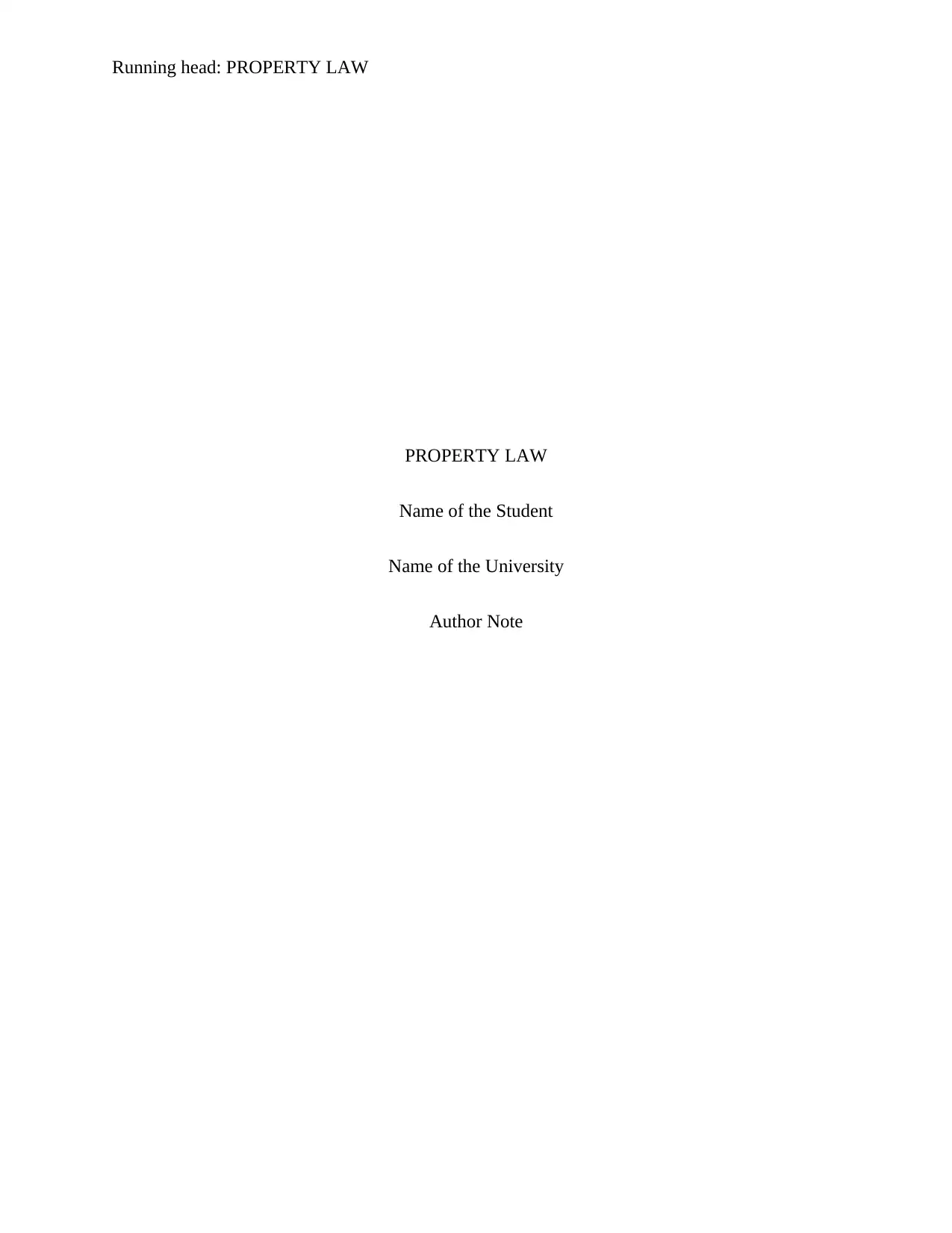
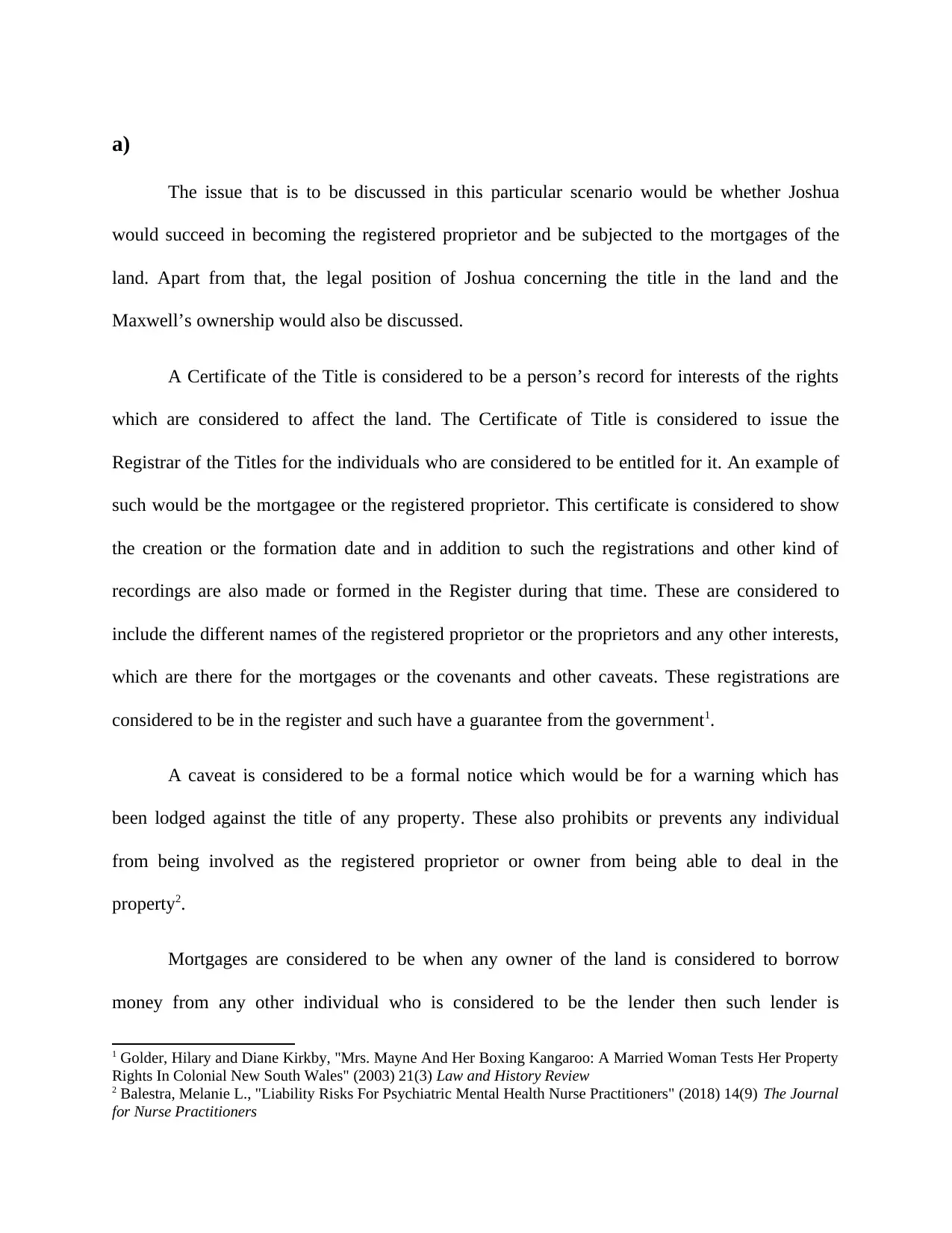
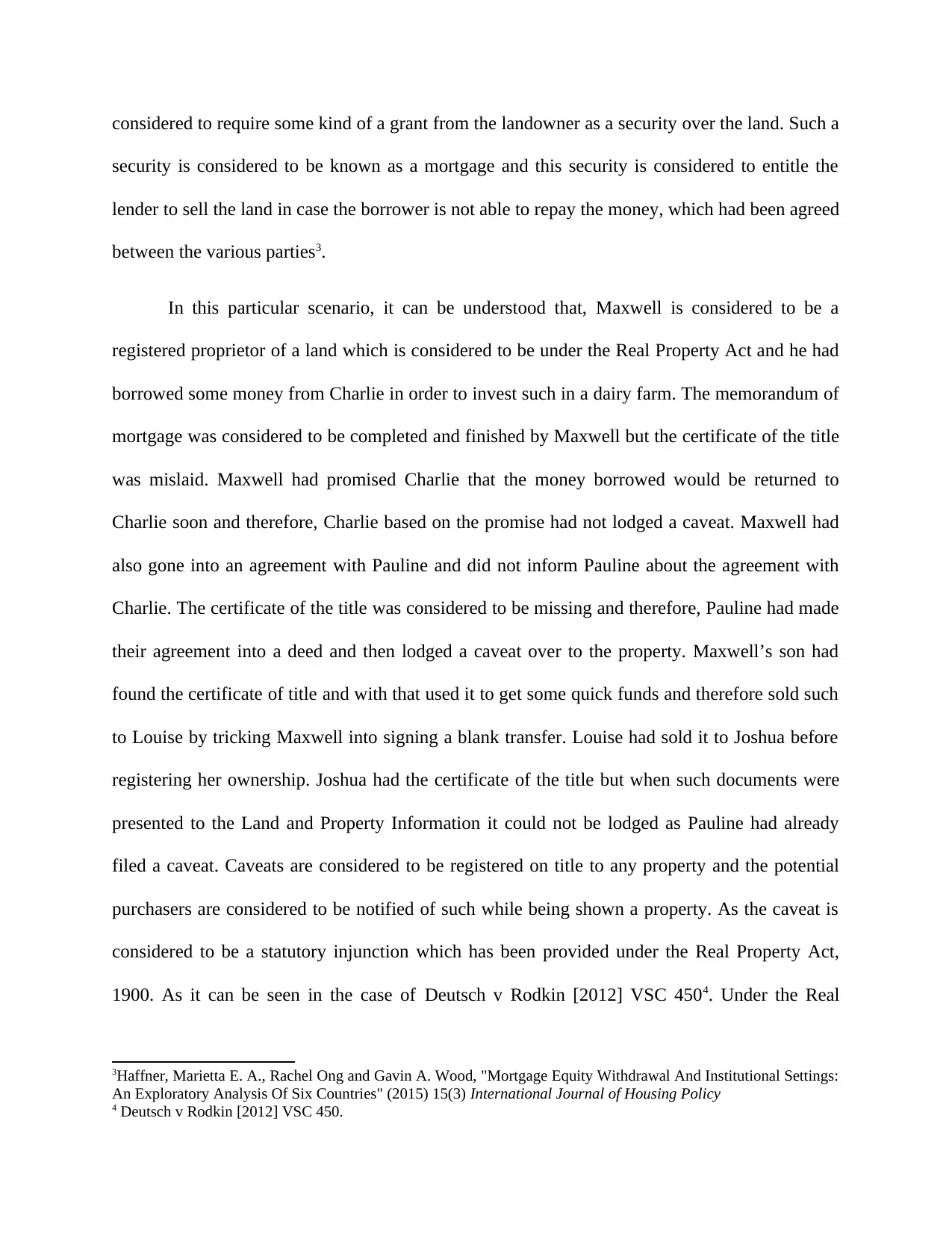

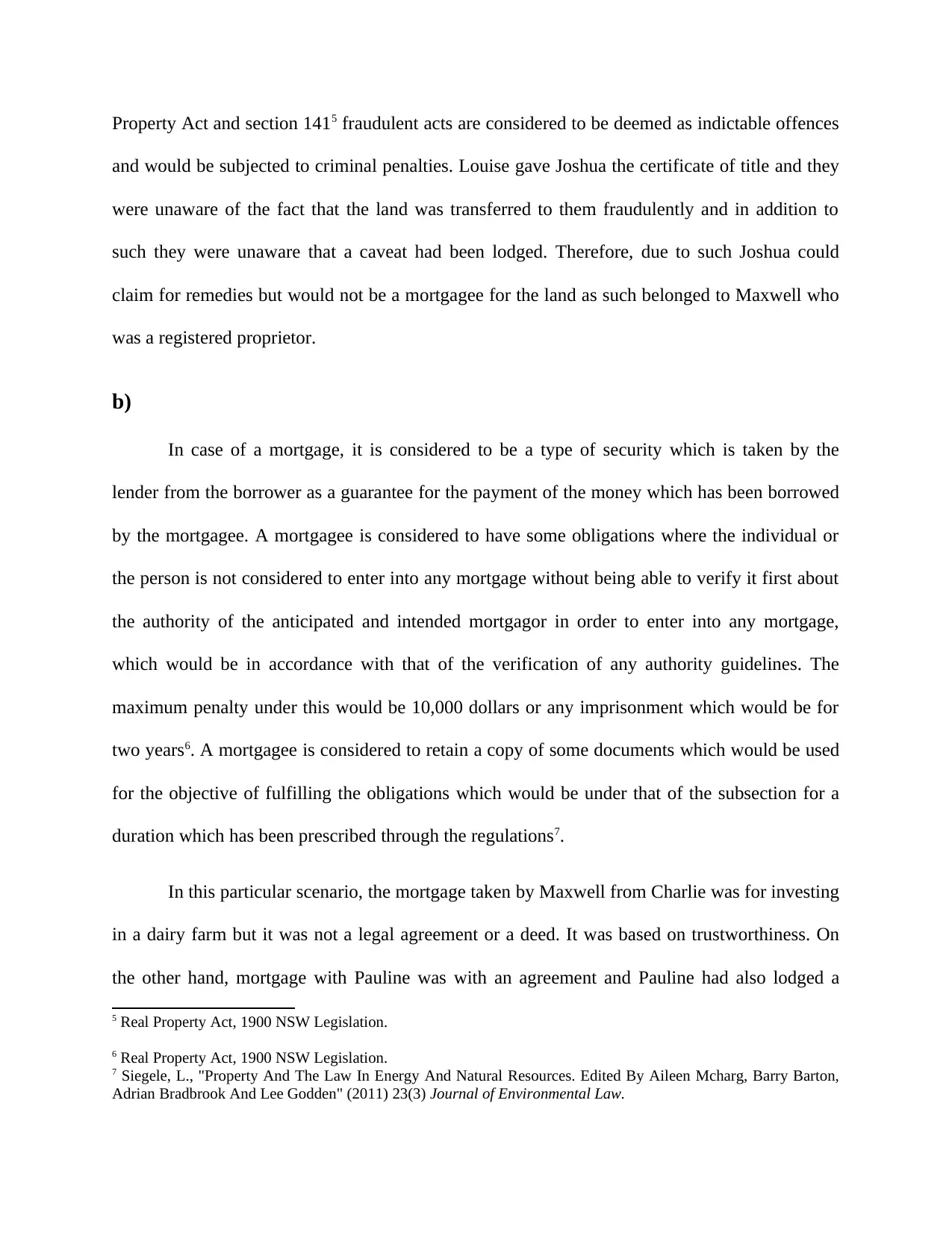
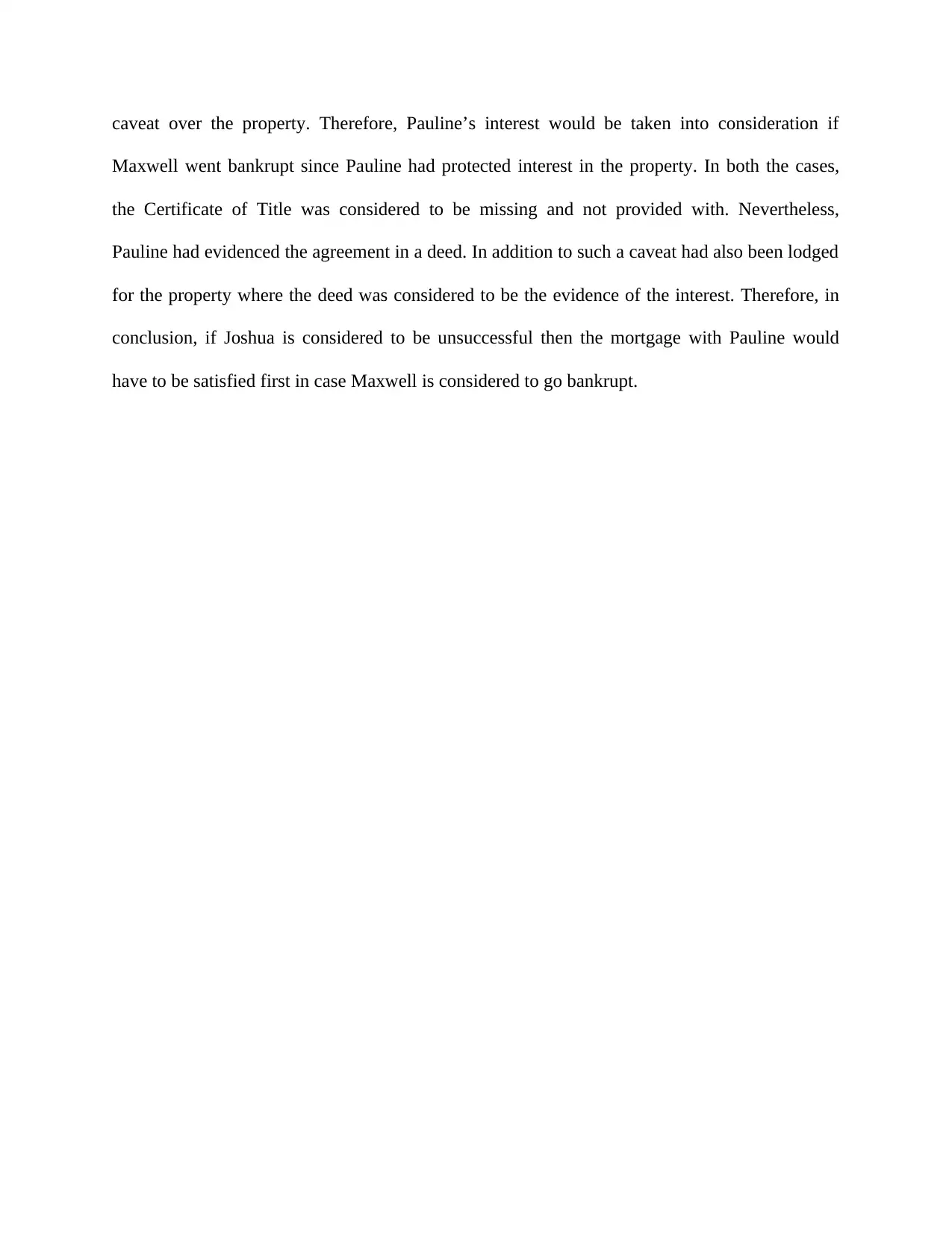






![[object Object]](/_next/static/media/star-bottom.7253800d.svg)